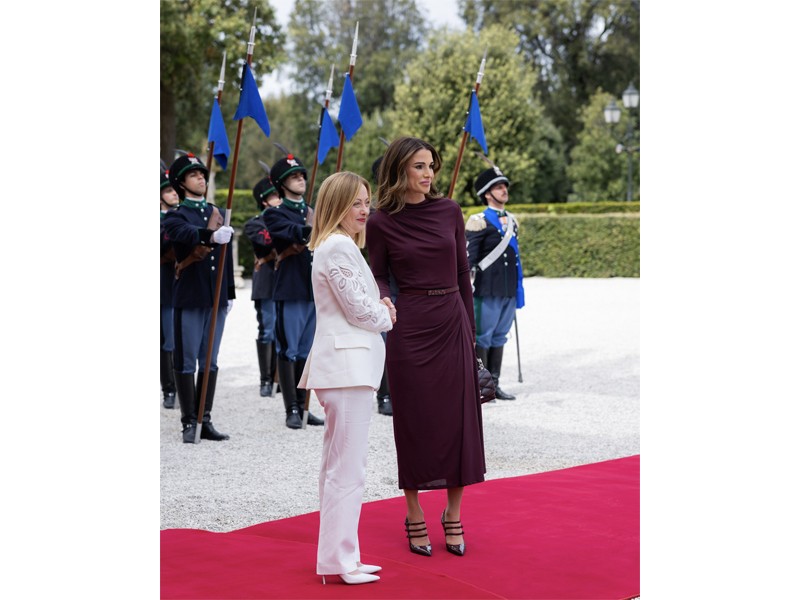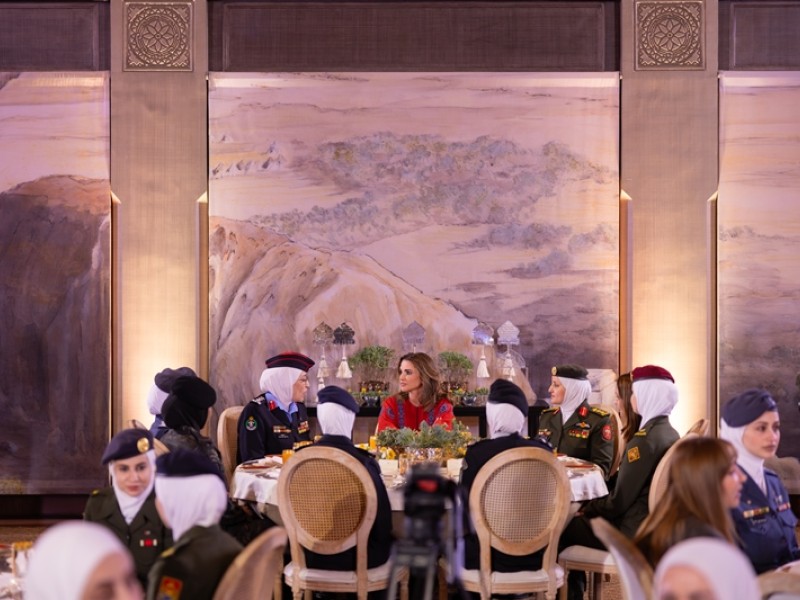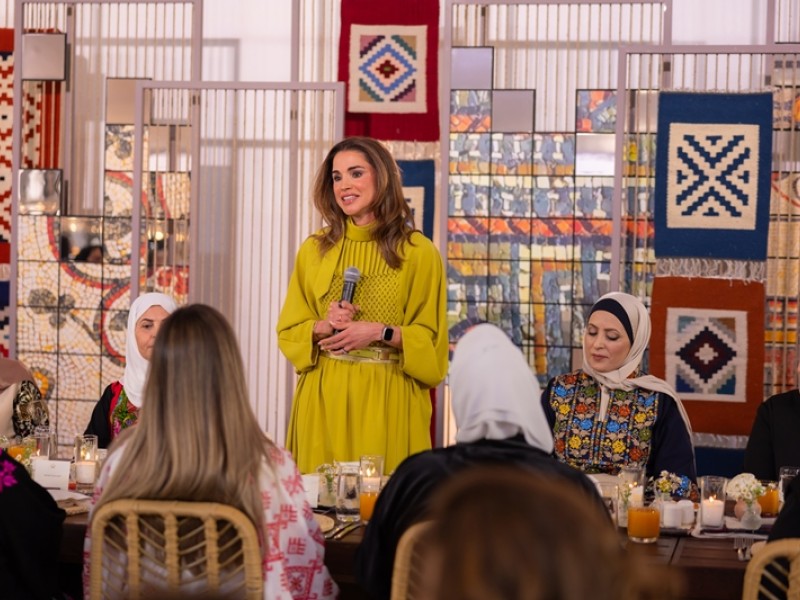Queen Rania Insists on Providing Vaccines as Human Duty and Ongoing Investment

(Jordan Times – Amman) – Her Majesty Queen Rania stressed that providing vaccines is a human duty and an ongoing investment, in addition to being a necessity to protect children.
The Queen, who is a board member of the GAVI Fund, made the remarks at a medical conference titled “Vaccines during the next decade in the Arab world,” which opened on Sunday. The three-day conference, organised by the University of Jordan’s faculty of medicine, seeks to highlight the issue of vaccines and to elevate its relevance in Arab countries.
Attending part of the discussions on the issue, the Queen expressed her pleasure at the attendance of public and private institutions and international organisations. She voiced hope that the gathering would represent the grounds to launch a network of partners to reach solutions, saying this calls for the efforts and collaboration of countries, organisations and private sector establishments, such as pharmaceutical companies, to provide financial resources.
Underlining the importance of cooperation, the Queen pointed out that Jordan has made steady strides to reduce infant mortality through establishing maternal and child centres, a national vaccination programme, and conducting several awareness-raising campaigns.
Emphasising the importance of immunisation and the provision of vaccines to give children a better chance in life, the Queen highlighted the need to develop vaccination programmes and ensure the supply of fresh vaccines. Queen Rania also underlined the need to build an Arab information database on health issues, to determine the progress of educational and awareness programmes, pointing out that it is difficult to do this without taking account of the current situation.
Head of the paediatric section at the University of Jordan Hospital and conference coordinator, Najwa Bulous, briefed the participants on its goals to mobilise Arab efforts and build partnerships with international organisations. She highlighted the role academia can play in this regard, in terms of medical education, and providing qualified and trained staff for vaccine programmes, in addition to activating the role of Arab universities to contribute to national immunisation campaigns.
Highlighting challenges facing the Arab world in this regard and their efforts to reduce the death rate among children, World Health Organisation (WHO) official Izzeddine Mohsen said the issue of providing vaccines should be placed among countries’ top priorities, through the commitment of their leaders.
Rana Hajeh, a GAVI representative who participated in the conference, stressed the role of international organisations in achieving a fair distribution of vaccines, and pointed out the lack of awareness, especially among decision-makers at the concerned financial institutions in the Arab world.
Several participants highlighted the roles of their respective countries, while Arab League official Ahmad Abdul Menem pointed out that the issue of improving the quality of health institutions will be on the agenda of the next Arab summit, which will also look into the possibility of manufacturing vaccines in Arab countries.
Ministry of Health Assistant Secretary General Adel Bilbeisi highlighted the national vaccination programme, launched in 1979, emphasising the ministry’s need for financial assistance to buy the necessary vaccines, which now cost the country JD7 million compared to JD3 million in the past.
Health Minister Salah Mawajdeh and other Jordanian health officials attended the conference, along with 60 doctors and specialists from Arab institutions and universities, in addition to participants from European countries and the US. Other organisations taking part are WHO, UNICEF and the Arab League.
Featured
Queen Rania's official website
This website does not support old browsers. To view this website, Please upgrade your browser to IE 9 or greater
Your browser is out of date. It has known security flaws and may not display all features of this and other websites. Learn how to update your browser



